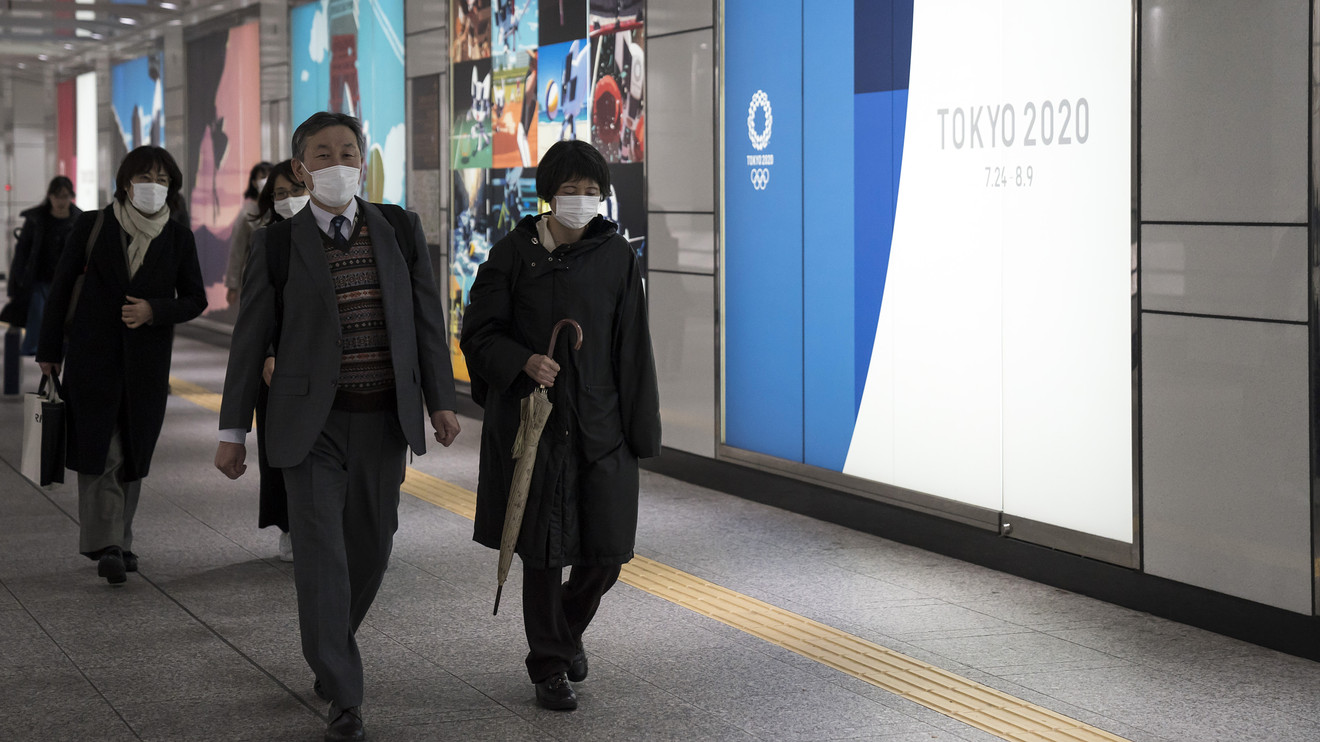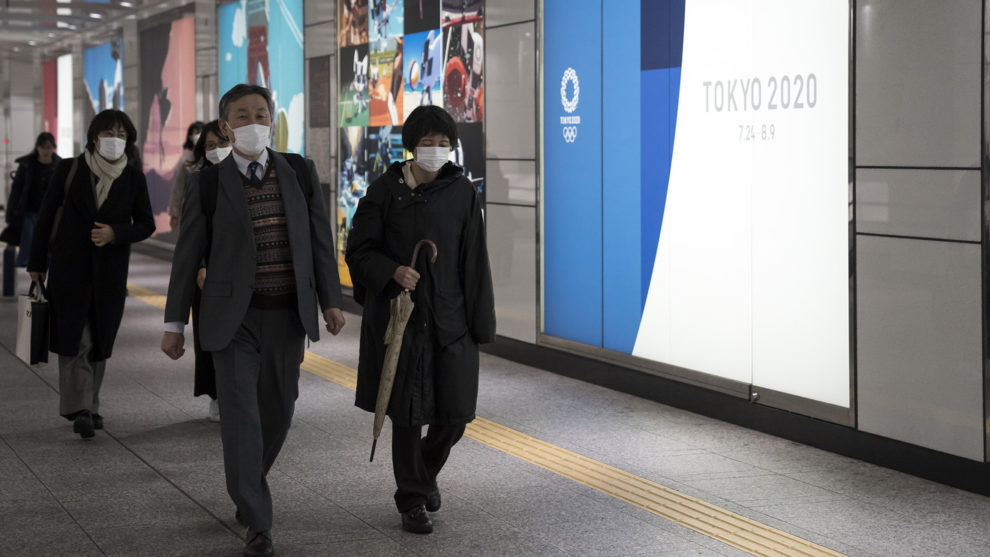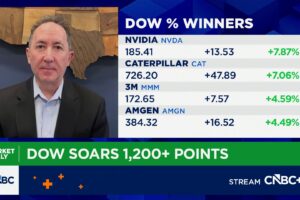
The growing number of COVID-19 cases and deaths outside of Asia has put pressure on U.S. officials to more clearly articulate preparedness plans in an effort to ease American worries about the possibility of a pandemic.
President Donald Trump tweeted Wednesday that he plans to hold a news conference on Wednesday evening about the novel coronavirus, saying the U.S. is in “great shape.” Health and Human Services Secretary Alex Azar, who is leading Trump’s coronavirus task force, is expected to be asked questions about the U.S. response to the outbreak in both of his scheduled appearances on Capitol Hill on Wednesday. Separately, Sen. Chuck Schumer (D-NY) is seeking $8.5 billion in new funding to fight the COVID-19 outbreak, a figure that is more than three times the $1.25 billion in new funding that the Trump administration requested from Congress earlier this week.
“Americans need to know that their government is prepared to handle the situation before coronavirus spreads to our communities,” Schumer said in a statement.
This follows a day in which a Centers for Disease Control and Prevention official urged Americans to prepare for the spread of the virus in their communities, saying that parents should talk to their children’s schools about closure protocols and workers should ask about work-from-home policies. These comments marked a shift in how U.S. health officials have talked about the outbreak to Americans.
There are now 81,312 confirmed cases of COVID-19 and at least 2,770 deaths, according to a tally of cases published by the Johns Hopkins Whiting School of Engineering’s Centers for Systems Science and Engineering.
The increase in cases overnight has primarily been driven by new cases in Iran (now at 139 cases and 19 deaths), Italy (401 cases and 12 deaths), Japan (178 cases and two deaths), and South Korea (1,261 cases and 12 deaths). While the outbreak has largely affected China — China’s Hubei Province has reported 94% of total deaths and mainland China has 96% of total cases — the emergence of COVID-19 clusters in these other countries has alarmed markets in recent days.
New York City mayor Bill de Blasio on Wednesday urged the CDC to extend travel screening requirements to travelers coming from the countries that have reported instances of “community spread” of COVID-19. Right now, all travelers from mainland China undergo additional screening requirements when they enter the U.S. De Blasio said travelers from Hong Kong, Iran, Italy, Japan, Singapore, South Korea, Taiwan, and Thailand should also undergo additional screening. There are no reported cases of COVID-19 in New York City. “There is not a single reason for panic,” de Blasio said during a news conference. “There is a reason for people to focus and follow through on the basics. And if we do that we will all be safe.”
In the U.S., there are at least 59 cases, though 45 of the positive tests are in people who were repatriated from Wuhan, China, the epicenter of the outbreak, or the Diamond Princess cruise ship, docked in a port at Yokohama, Japan, according to figures provided by Centers for Disease Control and Prevention officials on Tuesday. The virus was first detected in December in Wuhan.
The evolving nature of the outbreak, including the sudden rapid spread of the virus in Europe and the Middle East, has also prompted a number of concerns about large events. Organizers of the Tokyo Olympics told MarketWatch that the event will go on as scheduled, while the Economist Group’s World Ocean Summit, scheduled to take place in Tokyo on March 9 and 10, has been canceled.
Here’s what companies are saying about COVID-19:
• Papa John’s International Inc. PZZA, -9.68% said it has closed about 50 franchised stores in China as a result of the outbreak. Although the pizza company said the impact of the store closures isn’t currently material to its earnings, uncertainty about the spread of the virus could “lead to lower sales [and] widespread store closures or delays in our supply chain, which could have a negative impact on our business and operating results.”
• Sabre Corp. SABR, -17.51% said the coronavirus will have a “material impact” on its 2020 results, as the outbreak has weighed on travel bookings so far this year. The company said the estimated impact for the first quarter of earnings per share of 14 cents to 23 cents and for revenue of $100 million to $150 million.
• Danone SA BN, +1.15%, which markets food brands like Danone yogurt and Evian water, said during an earnings call that the COVID-19 outbreak in China “is having significant effects on our first quarter sales,” that it plans to delay the relaunch of Mizone water as a result until the second quarter, and one of its factories in Wuhan remains closed. China makes up 10% of the company’s sales. It expects to lose €100 million ($109 million) in sales in the first quarter of 2020.
• OneSpaWorld Holdings Ltd. OSW, -0.63%, which provides on-board spa services to cruises, said in an earnings statement that it expects to lose $5 million in revenue and $2 million in adjusted EBITDA as a result of 141 canceled or modified voyages and lower revenue at its resort spas in Asia. Royal Caribbean, which has canceled several cruises in Asia, said in a financial filing that its China itineraries were expected to make up 6% of its first-quarter revenue in 2020.
• Diageo DGE, -0.90%, which markets alcohol brands such as Johnnie Walker and Smirnoff, said in a trading update on Wednesday that it anticipates the outbreak will negatively impact organic net sales in a range of £225 million ($290.5 million) to £325 million and organic operating profit in a range of £140 million to £200 million in fiscal 2020. The spirits company said bars and restaurants are closed in China, airport traffic has slowed in Asia, and the spread of the virus to Japan, South Korea, and Thailand has led to fewer conferences, banquets and tourism.
• Alcoa Corp. AA, -2.45%, which makes aluminum products, said it is seeing supply chain bottlenecks in China for bauxite, caustic and coal gas that are lowering production. “It’s driving a shortage of alumina inside of China, which is then starting to see the Chinese alumina price increase and you see the knock-on impact in the rest of the world with prices also increasing, pricing up by about $20 per ton over these last few weeks,” CEO Roy Harvey told investors at an analyst conference on Tuesday.
Additional reported by Ciara Linnane and Tomi Kilgore
Read more of MarketWatch’s COVID-19 coverage:
How 2020 candidates would tackle disease outbreaks like coronavirus
European stocks tumble again as coronavirus worries weigh on investors
Stock futures wobble as investors remain focused on coronavirus spread outside China
Oil slumps to 13-month low on fears of economic toll from coronavirus








